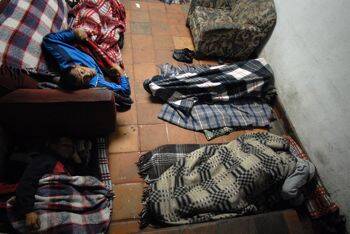Catholic bishops of the North and Central American region and the Caribbean have called on their respective governments “to take responsibility for the legal protection of migrants, including those searching for work, asylum-seekers, refugees and victims of human trafficking.” The bishops made an appeal to their governments to change or abolish, “those laws that cause the separation of migrant families, arbitrary detention and threats to life.” The bishops had gathered in San Jose, Costa Rica, in early June to discussion issues related to the pastoral care of migrants. Their joint declaration was made public June 30. The prelates, representing the bishops’ conferences of the United States, Mexico, Costa Rica, Panamá, Honduras and Guatemala, as well as CELAM (Council of Bishops’ Conferences of Latin America) and CARITAS International gathered to express solidarity and concern over the plight of immigrants in the Hemisphere. “We continue to witness great suffering among migrants in our countries and regions, who are the victims of exploitation and abuse from various elements of society [public officials, unscrupulous employers and criminal organizations],” the regional bishops said in their statement, urging government action to protect migrants and “special protection for families, women and children.” At the meeting, the bishops reflected on a variety of issues, including the increased violence against and kidnapping of migrants by organized crime, the increase in deportations between the United States and Mexico, the tragedy of human trafficking, growing economic inequality, the effects of globalization and the increasing threats to agents of the Pastoral Care of Migrants. They also urged continued support for the recovery of Haiti from the January 2010 earthquake, including putting a stop to deportations of Haitians in irregular situation within their countries.
A Call for the Protection of Migrants
Show Comments (
)
Comments are automatically closed two weeks after an article's initial publication. See our comments policy for more.
The latest from america
Los Angeles Archbishop José H. Gomez was one of several community leaders who joined to open the Family Assistance Program, aiding those affected by recent ICE raids.
On Friday, Pope Leo XIV issued a statement on the theme "Migrants, missionaries of hope."
In Steven Spielberg’s “Close Encounters of the Third Kind,” an ordinary electrician has a transcendent encounter—with U.F.O.s, not God.
Many of my acquaintances have given up “reading about something that didn't happen.” But fiction has long-term and concrete value, both mentally and socially.








